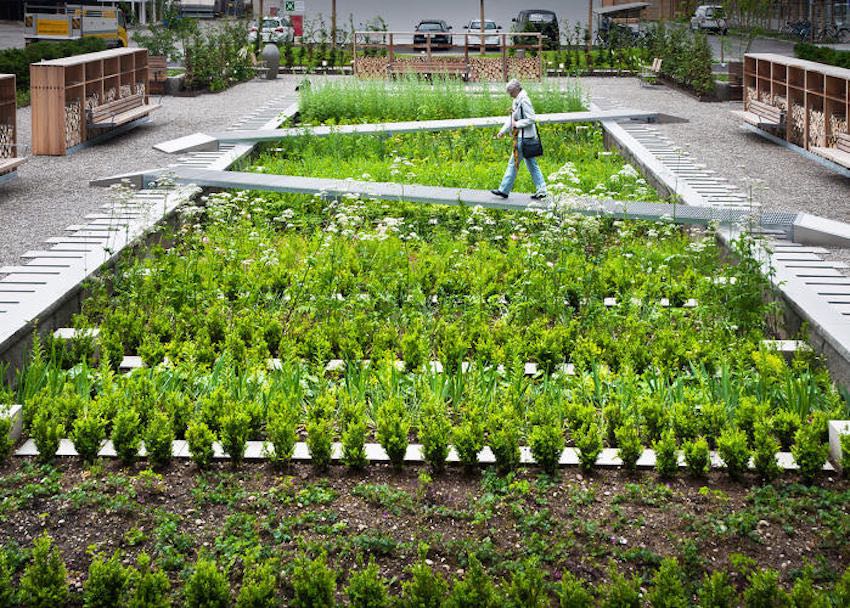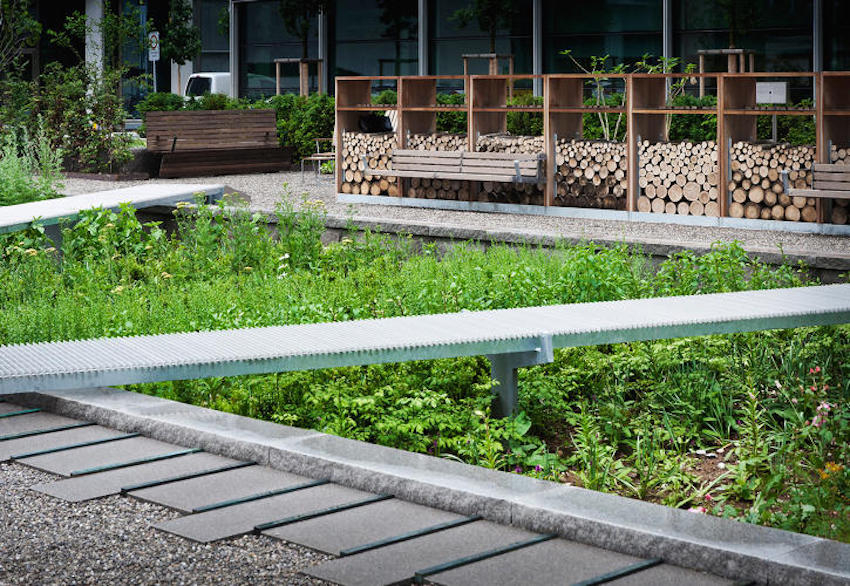It’s full of lush medicinal plants—and no, marijuana is not one of them.

While some people swear by homeopathy to treat their ailments, the fact is we’re more likely to turn to a prescriptions today—thanks, pill-pushing Big Pharma.
But centuries ago, doctors only had botanicals at their disposal. They cultivated so-called physic gardens that contained dozens—and sometimes hundreds—of medicinal plants and used them to concoct remedies. At its new campus in Basel, Switzerland, the pharmaceutical company Novartis spoke to the history of medicine by resurrecting the idea, building a modern physic garden that melds contemporary design with traditional plants used for healing.

Landscape architect Thorbjörn Andersson and engineering firm Sweco conceived of the garden as a green space where the company’s scientists could take a break from their work inside, walk around, and let the beauty of plants inspire their next breakthrough. “The physic garden displays plants important to the development of the pharmaceutical industry,” Andersson writes in the project’s description. “In that sense, the physic garden can be said to represent the cradle of the company’s products and the soul of its activities.”

The garden bed is recessed and bridges criss-cross the over its plants and flowers, which change with the seasons. The botanic medley—70 types in all—includes orange calendulas and purple irises that bloom in the summer months; white snowdrops and Christmas roses emerge in winter.
From our partners:

The plants each have their own medicinal properties, like fennel which is used as an anti-inflammatory agent. In the Medieval ages, it was common practice to “extract” the toxins believed to cause illness, which was often done through making people throw up. Speaking to that tradition, the garden includes monarda, an expectorant.
While modern science has debunked unsavory practices like purging, the plants themselves are certainly worthy for their aesthetic merits—not to mention creating an appealing environment for Novartis’s employees, too.
This feature originally appeared in Fast Company.
















